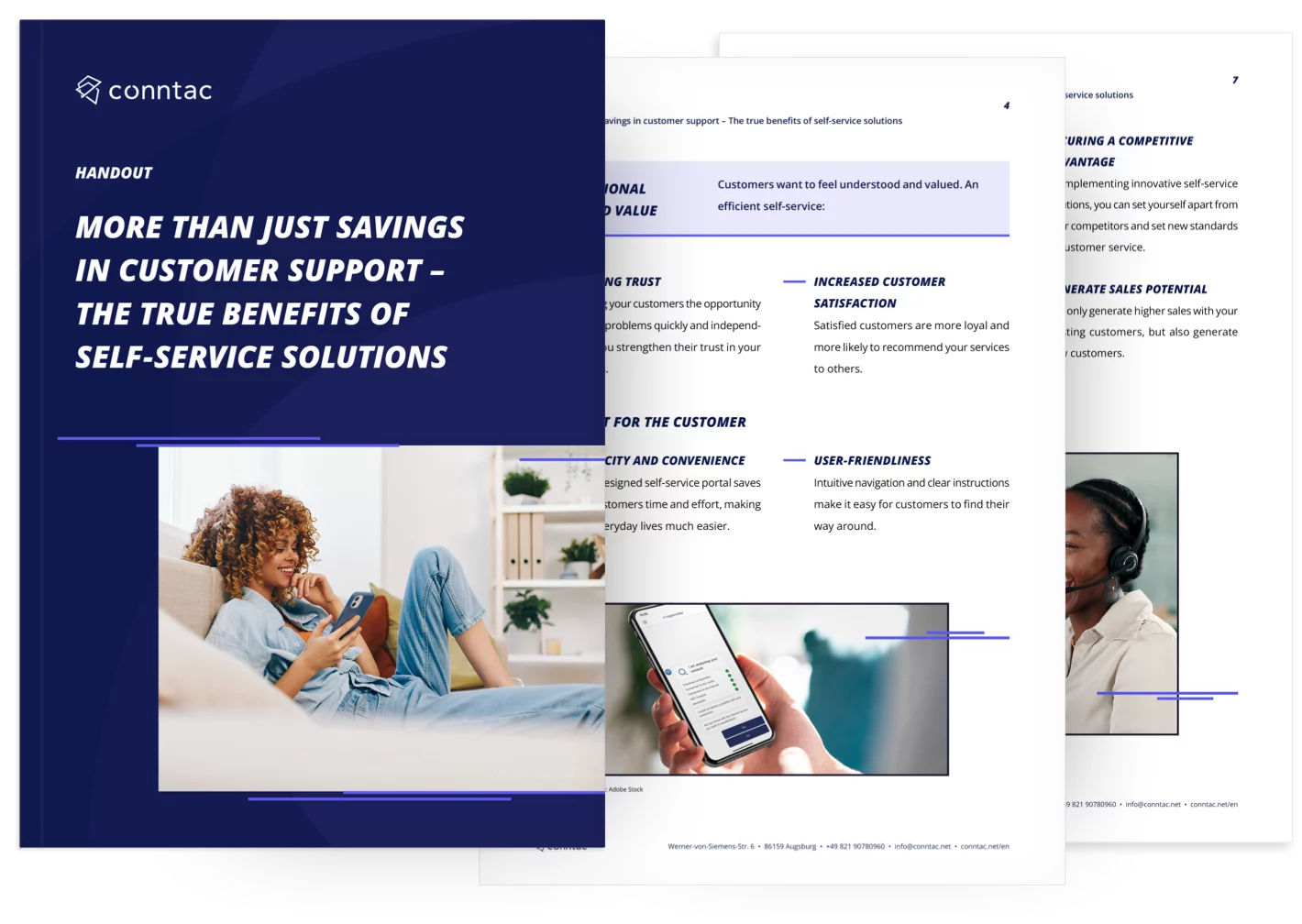Technologization ≠ dehumanization
AI-powered chatbots, self-service portals, and automated FAQs have revolutionized customer service. They are available around the clock, process millions of inquiries and noticeably relieve hotlines.
But digitization does not mean that the human factor is losing importance – quite the opposite. Studies show: 59% of customers switch providers after several bad experiences (Source: PwC), 17% after just one bad experience. Around two thirds share negative experiences with friends and family (Source: Khoros 2024) — with a direct impact on reputation and revenue.
Conclusion of the introduction: Efficiency alone is no longer enough. Customers not only expect quick answers, but also understanding, empathy and an individual solution.
The limits of AI in customer service
Chatbots are powerful when it comes to simple, standardized tasks: reset passwords, check delivery status, or display contract data. But as soon as things become complex, they reach limits.
1. Limited problem identification
Without access to technical parameters such as router logs or network status, bots can only ask standard questions.
2. Lack of depth in problem solving
Complex setups such as mesh networks or faults in the backbone require contextual diagnostics that automated systems cannot provide.
3. No emotional intelligence
AI doesn't recognize when a customer is frustrated or has an urgent problem – the risk of escalation increases.
Upshot: Customers go through the bot loop, repeatedly enter the same data and have no way of reaching a real contact person. This creates frustration – and this is exactly where it is decided whether they remain loyal to the provider.
The potential of MI – the E3 formula
Human intelligence (HI) is the opposite of pure automation – and it is essential. The E3 formula shows which dimensions make the difference:
- Efficiency: Service employees can prioritize, improvise and quickly forward complex cases.
- Expertise: Expertise, experience and contextual problem solving ensure sustainable results.
- Emotion: Active listening and empathy create the feeling of being taken seriously – even when the solution takes time.
Study: The consumer study “The Relationship Economy: Customer Engagement in the Digital Era” by Twilio, acustomer engagement platform, in collaboration with Oxford Professor Andrew Stephen from Said Business School shows that customers find three factors particularly important when interacting with companies: Efficiency (e.g. quick answers, 39% cite this as a reason for repurchases), professional knowledge (24% stress the importance of competent information) and emotions (friendly service is decisive for 42%).
Hybrid models using MyProvider as an example
The best solution is not either/or, but a combination of automation and individual support. That is exactly what the MyProvider app from Conntac offers:
- Automatic troubleshooting: WiFi optimization, router setup and standard problems are solved directly in the app – even without an active Internet connection.
- Seamless escalation: If the problem persists, the app passes all diagnostic information to Support.
- Consistent experience: Employees see all relevant data in the Conntac dashboard and can immediately start solving the actual problem.
Practical results:
- 70% shorter processing times
- 25% fewer hotline calls
- Significantly higher initial solution rate
Hybrid models relieve teams and increase customer satisfaction at the same time – a win for both sides.
Conclusion & recommendation: offer customers freedom of choice
Modern customers want to decide for themselves how to solve a problem: digitally in self-service or in person with a person. Companies that enable this freedom of choice reduce frustration, cut costs, and build long-term customer relationships.
“Technology answers questions. People create trust. ”














